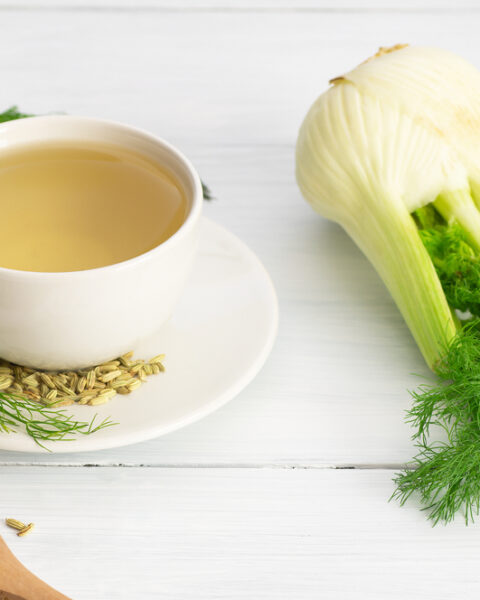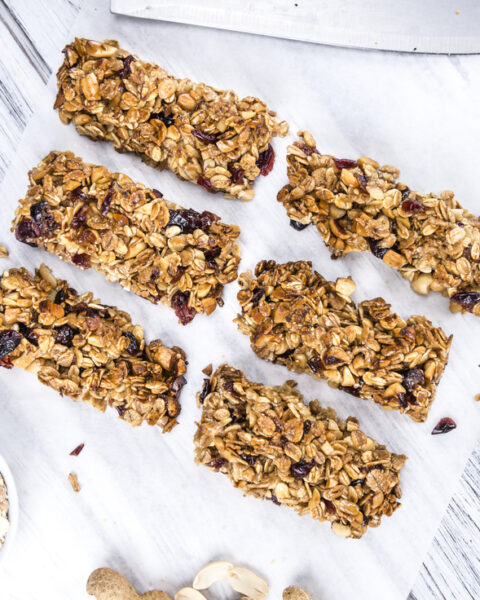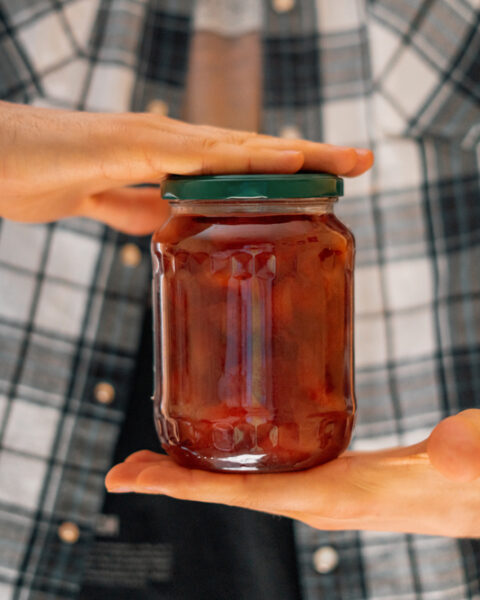Choosing the right countertops for your kitchen can be a big decision. Quartz countertops have become increasingly popular due to their many benefits. However, like any material, they come with their own set of drawbacks. To help you decide if quartz is the right choice for your kitchen, here’s a detailed look at the pros and cons of quartz countertops. From their impressive durability and low maintenance to potential challenges like cost and heat sensitivity, we’ll cover everything you need to know to make an informed decision.
Contents
- 1 Pro: Durability
- 2 Con: Installation Difficulty
- 3 Pro: Low Maintenance
- 4 Con: Heat Resistance
- 5 Pro: Aesthetic Versatility
- 6 Con: Price
- 7 Pro: Non-Porous Surface
- 8 Con: Weight
- 9 Pro: Consistency in Appearance
- 10 Con: Limited Outdoor Use
- 11 More From RetailShout
- 12 17 Foods That Can Trigger Acne Breakouts
- 13 16 Hassle-Free Weeknight Meals to Make in Under an Hour
Pro: Durability
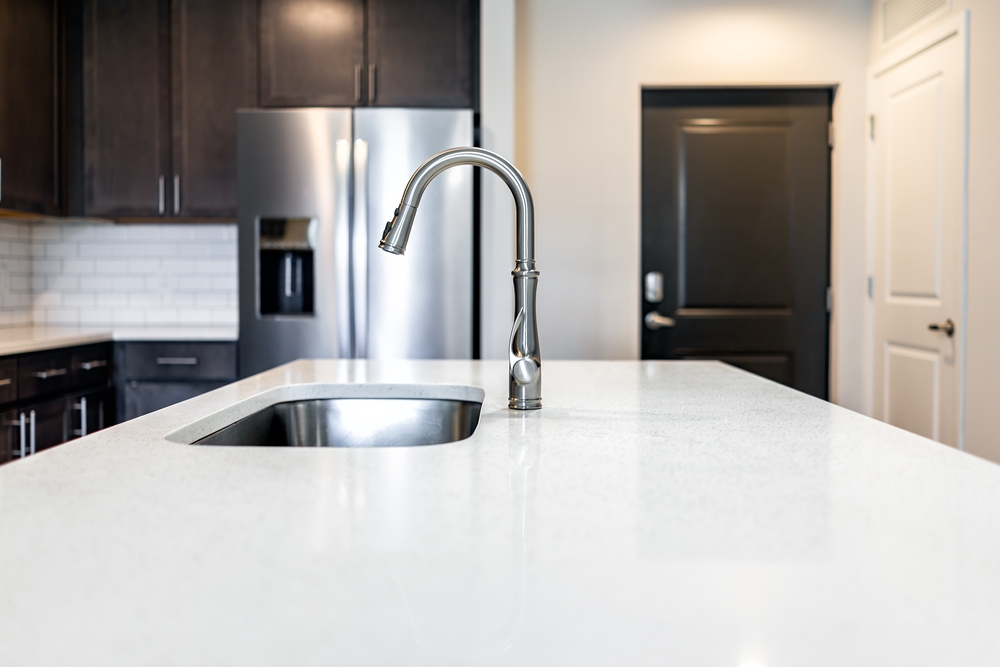
Quartz countertops are incredibly durable, making them a popular choice for busy kitchens. They are composed of a high percentage of quartz mixed with resins and pigments, which gives them their robustness. This material is resistant to scratches, chips, and other forms of damage that can occur in a kitchen environment. Unlike natural stones, quartz doesn’t require sealing to maintain its durability. Furthermore, it withstands the wear and tear of daily kitchen use better than many other materials. Its durability also means a longer lifespan, reducing the need for frequent replacements.
Con: Installation Difficulty
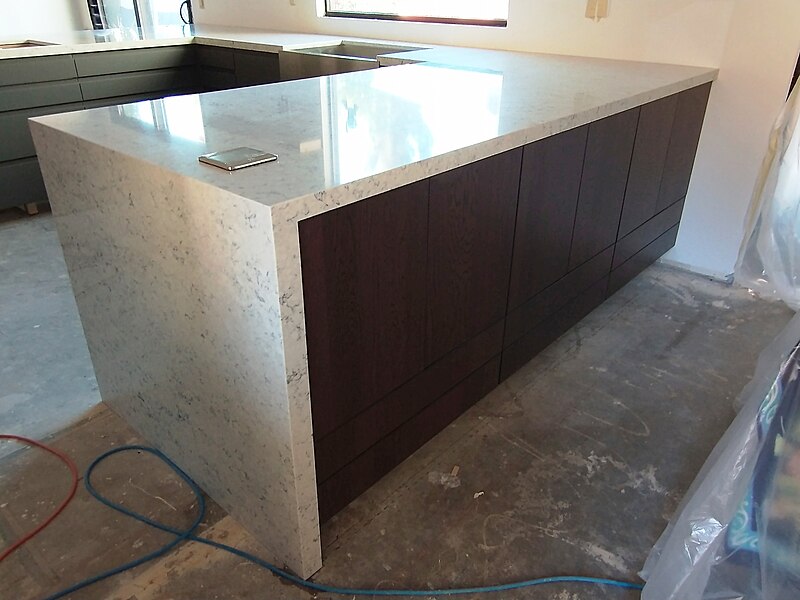
The installation process for quartz countertops can be quite challenging and typically requires professional assistance. Quartz slabs are heavy and cumbersome, making them difficult to maneuver and position. This can increase the overall cost due to the need for skilled labor and proper equipment. Additionally, precise measurements and cuts are crucial to ensure a proper fit, which adds to the complexity of the installation. DIY installation is generally not recommended due to these challenges. Homeowners must also consider the potential disruption to their kitchen during the installation process.
Pro: Low Maintenance
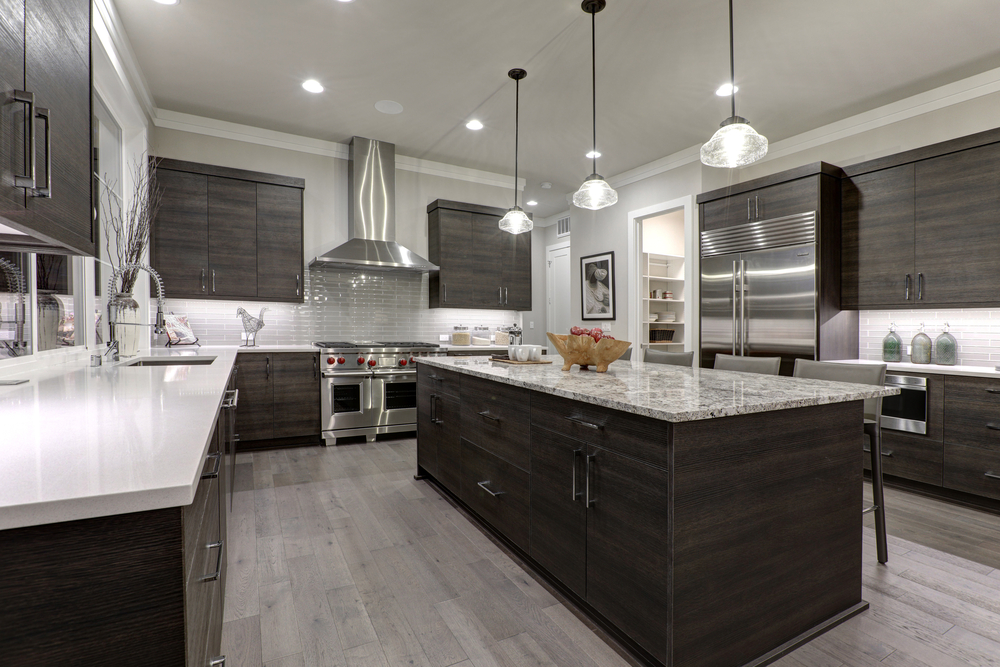
One of the significant advantages of quartz countertops is their low maintenance requirements. The non-porous surface of quartz means it resists staining from common kitchen substances like wine, oil, and coffee. Unlike granite or marble, quartz does not need to be sealed periodically to maintain its appearance and integrity. Cleaning quartz countertops is straightforward, requiring just soap and water or a mild household cleaner. The surface’s resistance to bacteria and mold makes it a hygienic choice for kitchen spaces. Overall, quartz countertops offer ease of care without sacrificing beauty or functionality.
Con: Heat Resistance
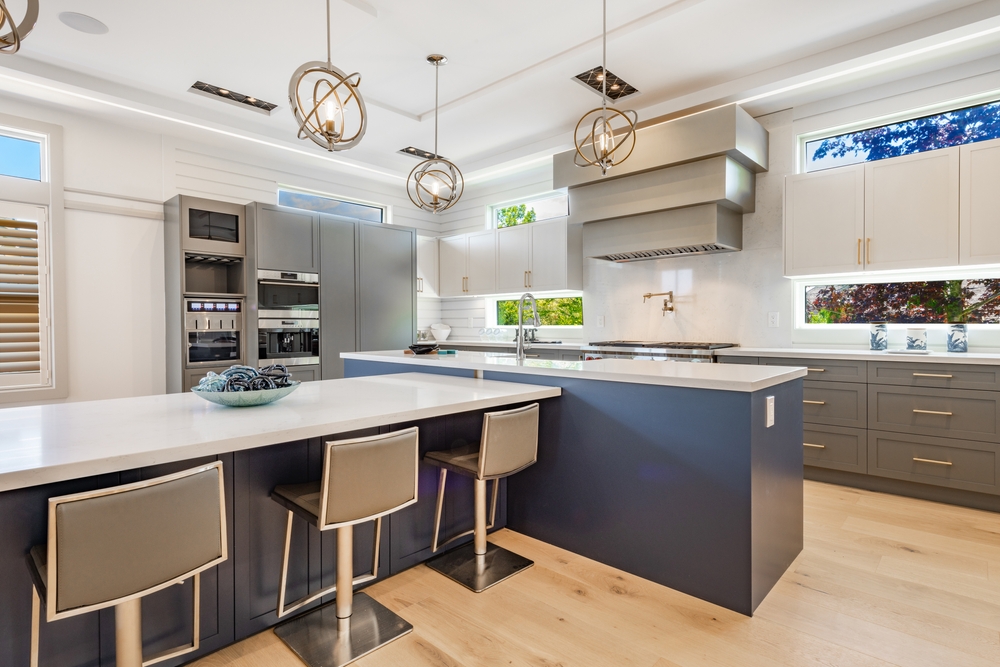
While quartz countertops are durable, they are not entirely heat resistant. Direct exposure to high temperatures, such as placing hot pots or pans directly on the surface, can cause damage. This can result in discoloration or even cracking due to the resin in the material reacting to the heat. To prevent heat damage, it is essential to use trivets or hot pads when dealing with hot cookware. Homeowners need to be mindful of this limitation to avoid costly repairs or replacements. This aspect can be a significant drawback for those who frequently cook and need a heat-resistant surface.
Pro: Aesthetic Versatility
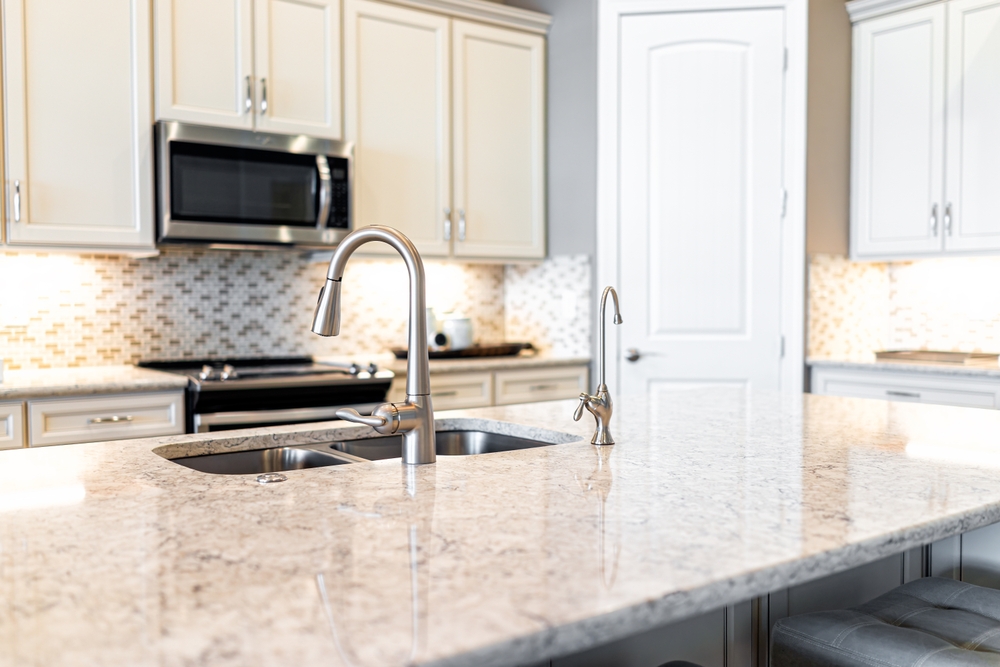
Quartz countertops offer a wide range of colors and designs, providing aesthetic versatility for any kitchen design. Manufacturers can customize the appearance to mimic natural stones like marble and granite or create unique patterns and colors. This variety allows homeowners to choose countertops that perfectly match their kitchen’s decor and style. The consistency in color and pattern throughout the slab ensures a uniform look, unlike natural stones that may have unpredictable veining. Additionally, the sleek and modern appearance of quartz can enhance the overall aesthetic appeal of a kitchen. The ability to customize makes quartz a versatile choice for various design preferences.
Con: Price
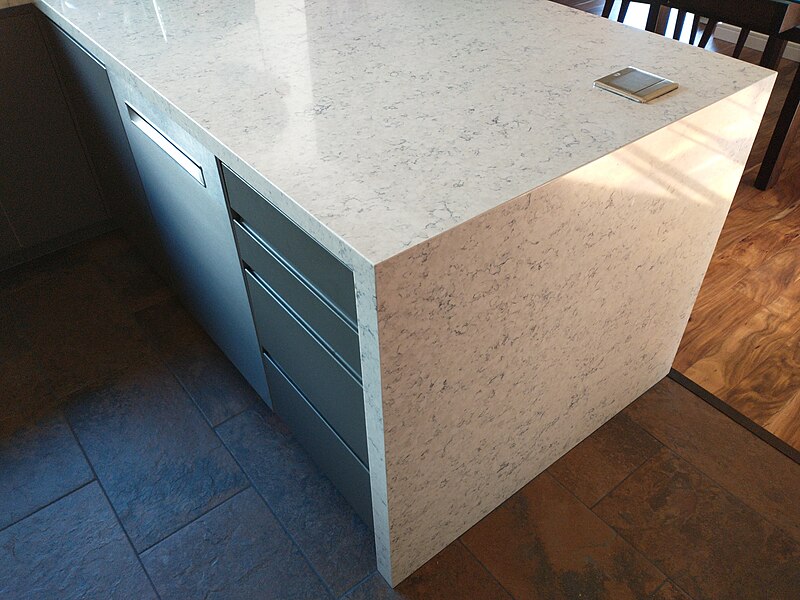
Quartz countertops can be quite expensive compared to other countertop materials. The cost is influenced by the quality of the quartz, the complexity of the installation, and the brand chosen. Homeowners must consider their budget when opting for quartz, as it might not be the most cost-effective option. While the long-term durability and low maintenance can offset the initial investment, the upfront cost can be a barrier. Additionally, the price can vary significantly depending on the customization and design options selected. For those on a tight budget, alternative materials might be more financially feasible.
Pro: Non-Porous Surface
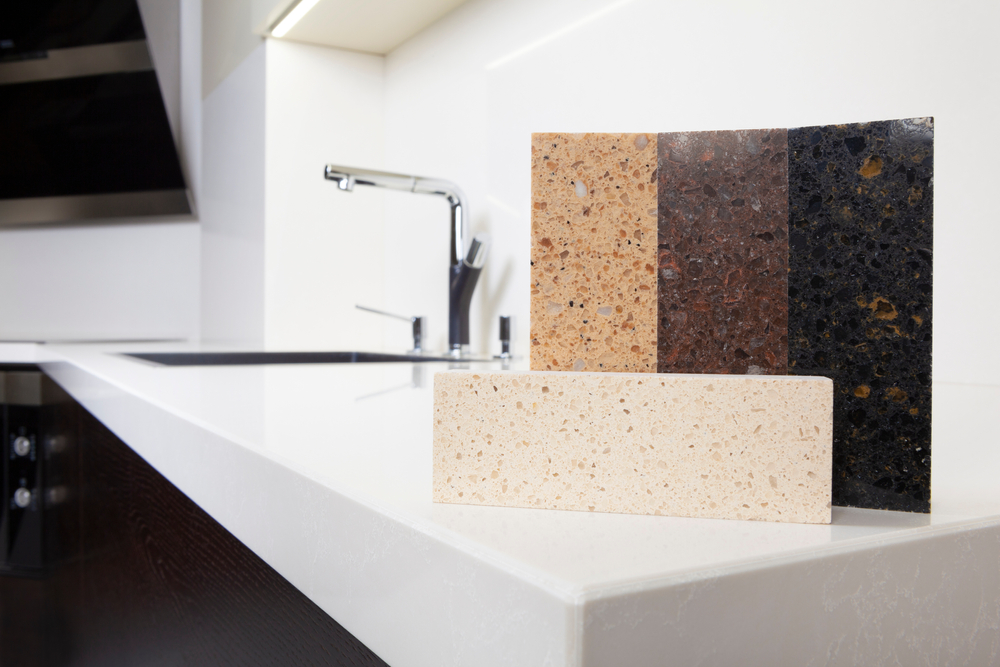
The non-porous nature of quartz countertops offers significant advantages in terms of hygiene and maintenance. Unlike natural stones, quartz does not have tiny pores where bacteria, mold, and mildew can grow. This makes quartz a more sanitary option for kitchen surfaces, as it prevents the absorption of liquids and spills. The non-porous surface also means that it is less likely to stain, making it easier to clean and maintain its appearance over time. This characteristic ensures that the countertop remains looking new with minimal effort. The hygienic properties of quartz are particularly beneficial in a kitchen environment where food preparation occurs.
Con: Weight
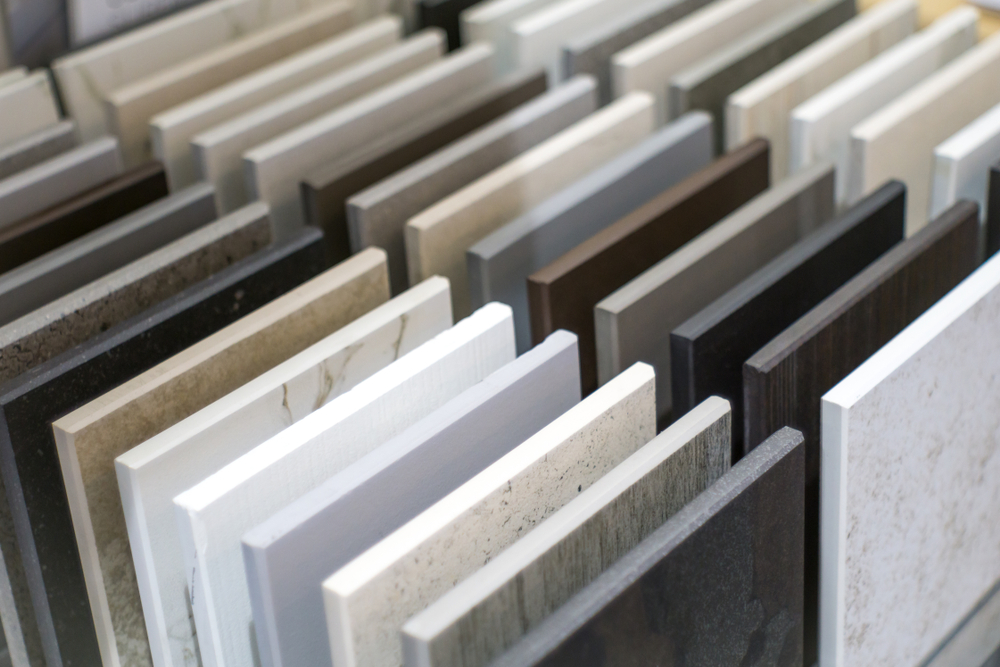
Quartz countertops are considerably heavy, which can pose challenges during installation and require reinforced cabinetry. The weight of the slabs can make them difficult to handle and transport, necessitating professional installation. Cabinets and flooring must be able to support the additional weight, potentially requiring structural modifications. This can increase the overall cost and complexity of the kitchen remodel. Additionally, the heavy weight limits the flexibility in moving or adjusting the countertops once installed. Homeowners should be aware of these factors when considering quartz for their kitchen.
Pro: Consistency in Appearance
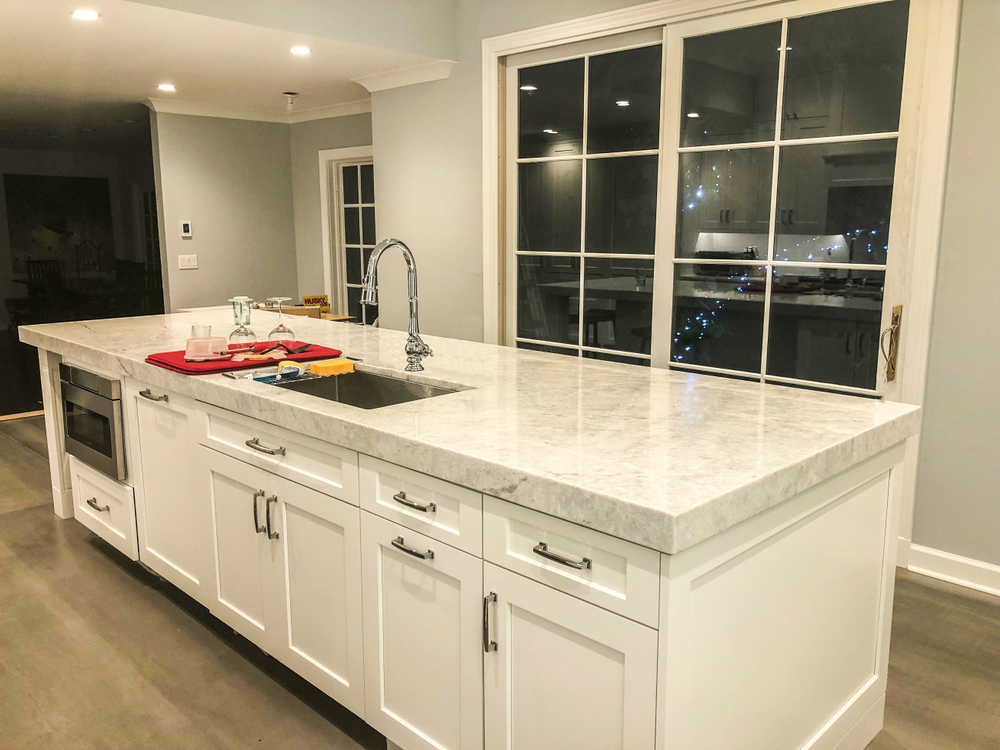
Quartz countertops offer a consistent and uniform appearance, which is a significant advantage over natural stone options. Each slab of quartz is engineered to have a predictable color and pattern, eliminating the variations and imperfections found in natural stones. This consistency allows for a seamless and cohesive look in the kitchen, especially when using multiple slabs. The uniformity also simplifies the process of matching and replacing sections if needed. For homeowners seeking a polished and contemporary aesthetic, quartz provides a reliable and visually appealing option. The ability to achieve a consistent look is particularly beneficial in modern kitchen designs.
Con: Limited Outdoor Use
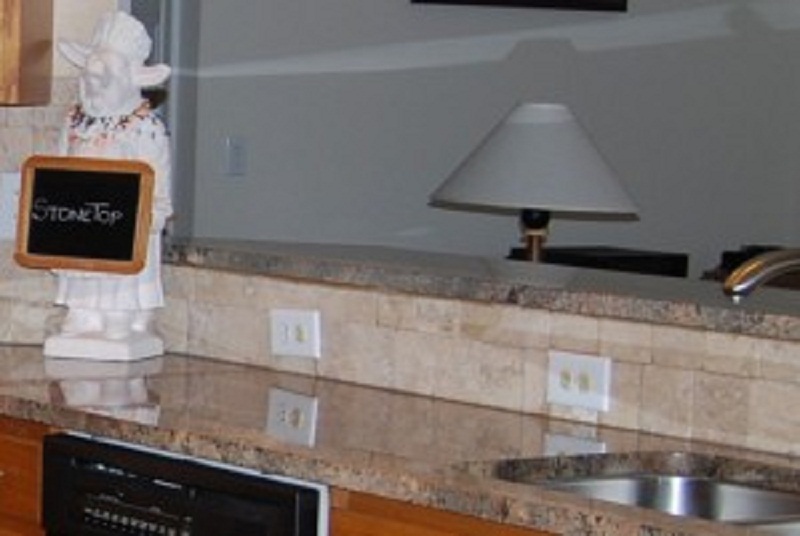
Quartz countertops are generally not recommended for outdoor use due to their sensitivity to UV rays and extreme weather conditions. Prolonged exposure to sunlight can cause the color of the quartz to fade or change over time. Additionally, the resins used in quartz can become discolored or brittle when subjected to temperature fluctuations and moisture. This limitation restricts the use of quartz to indoor applications, which can be a drawback for those looking to create an outdoor kitchen. Homeowners must consider other materials better suited for outdoor environments. The limited outdoor applicability can reduce the versatility of quartz as a countertop material.
This article originally appeared on RetailShout
More From RetailShout
16 Ultimate Meals for a Memorable Date Night at Home
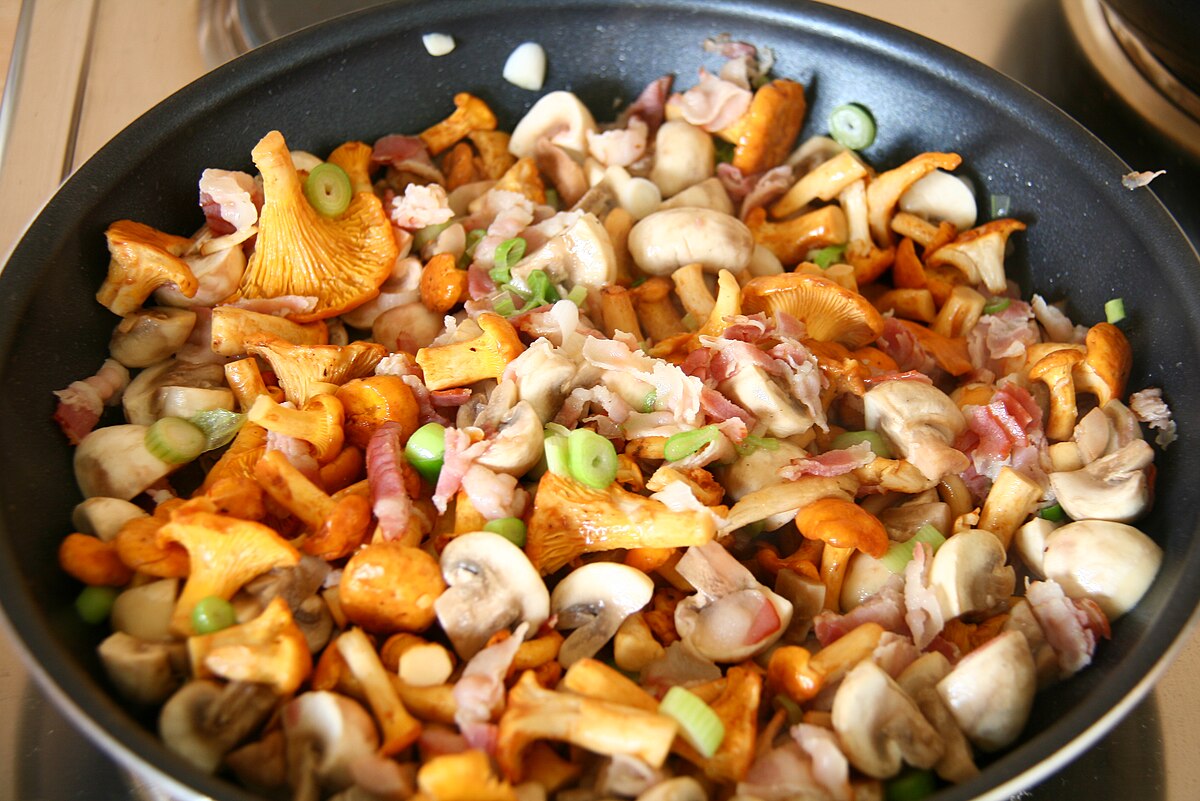
Planning a date night at home can be just as special as going out to a fancy restaurant, and it can often be more intimate and memorable. Imagine cooking a delicious meal together, sharing laughs in the kitchen, and enjoying a homemade feast that rivals any restaurant dish. Read More.
17 Foods That Can Trigger Acne Breakouts
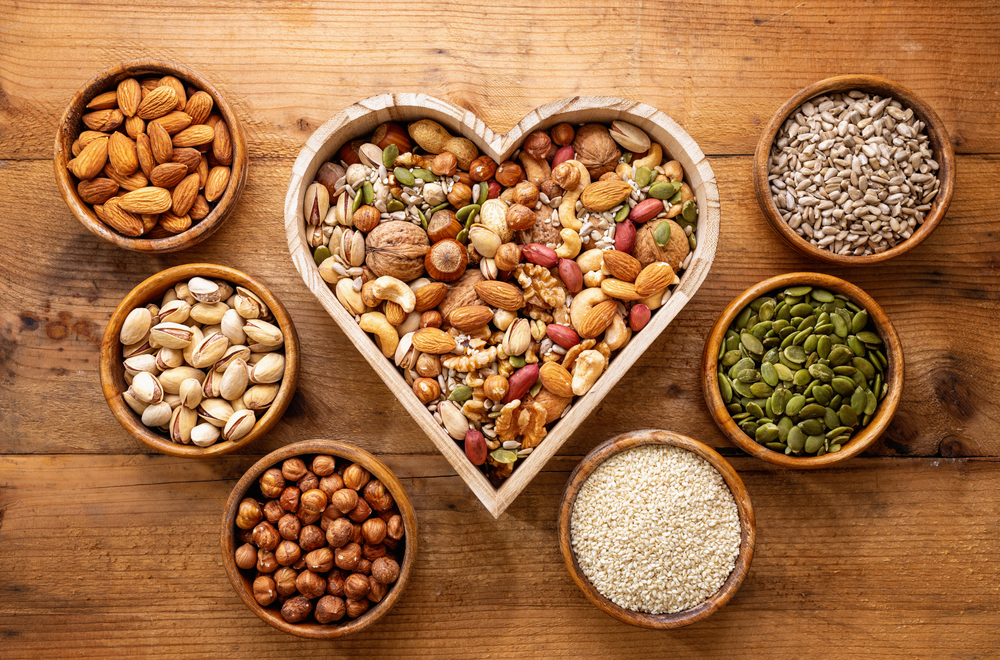
Acne is a common skin issue that affects people of all ages, and while it’s often attributed to hormones and genetics, diet plays a significant role as well. The foods we eat can either support clear, healthy skin or contribute to breakouts that can be frustrating to manage. Read More.
16 Hassle-Free Weeknight Meals to Make in Under an Hour
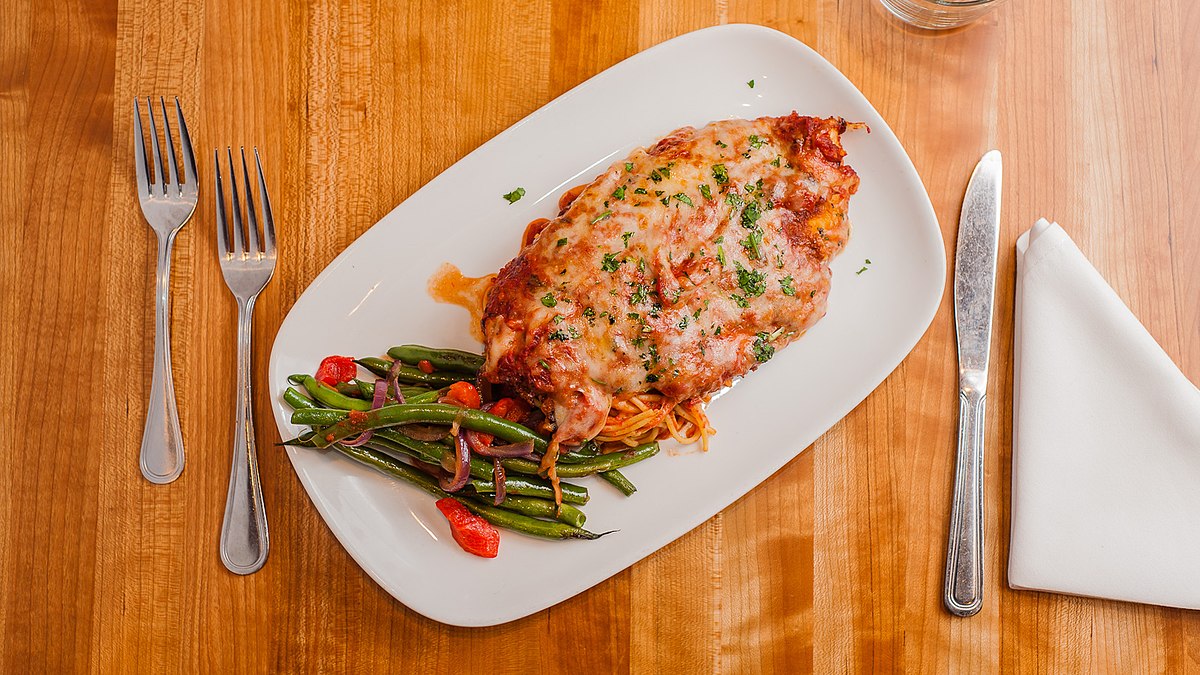
Weeknights can be hectic, but dinner doesn’t have to be a stress point. Imagine coming home and whipping up a delicious meal in under an hour, from prep to finish. That’s exactly what these 16 recipes offer: tasty, quick, and satisfying dishes that make busy evenings a breeze. Read More.


